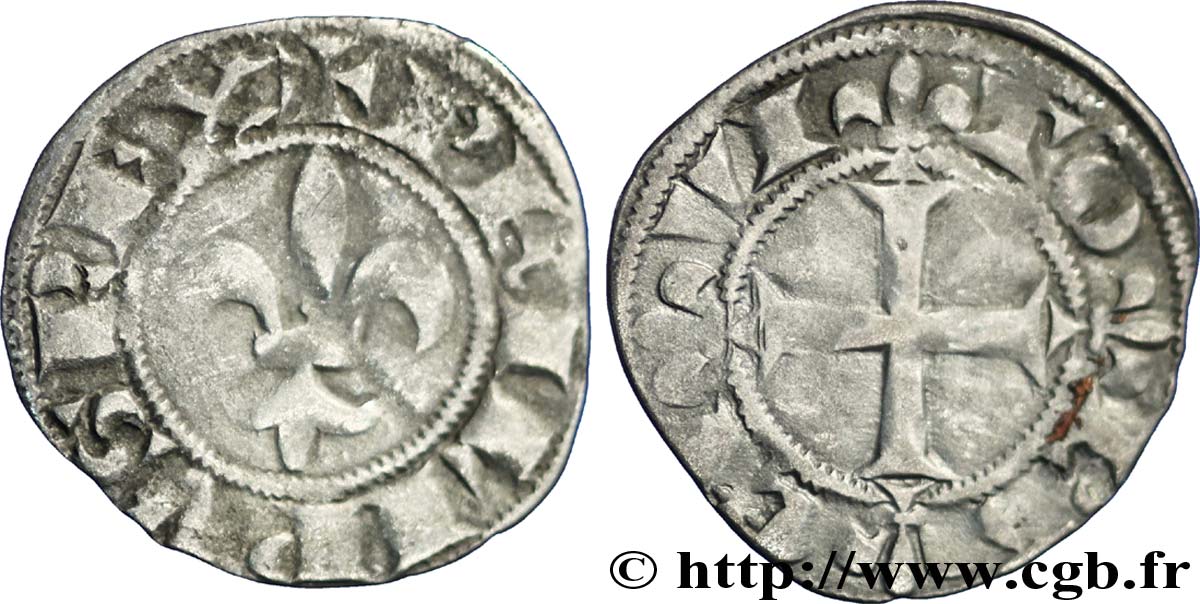Obverse
Obverse legend : + PHILIPVS REX.
Obverse description : Fleur de lis.
Obverse translation : (Philippe, roi).
Reverse
Reverse legend : TO/LA/CI/VI.
Reverse description : Croix fleurdelisée coupant la légende.
Reverse translation : (Cité de Toulouse).
Historical background
PHILIP III "THE BOLD"
(25/08/1270-5/10/1285)
Born in 1245, second son of Saint Louis, Philippe III succeeded him at the age of twenty-five. Having brought back to France the Crusader army trained by his father in front of Tunis, he inherited from 1271 the lands of his uncle Alphonse: Poitou and county of Toulouse. From Pierre, fifth son of Saint Louis, he inherited Perche. He bought the counties of Nemours (1274) and Chartres (1284). But Philippe's policy was essentially turned towards the South. In 1272, he captured Foix. In 1273, Edward I lent him homage for his fiefs and, six years later, the King of France ceded the Agenais to him.. In 1274, he ceded the Comtat Venaissin to the Holy See. From 1276, Philip III got involved in the conflicts related to the successions of the kingdoms of Navarre and Castile. In 1275, by the Treaty of Orléans, Blanche d'Artois, Queen of Navarre, betrothed her daughter, Jeanne, to the future Philippe le Bel, preparing for the reunion of Navarre with France. In Castile, the King of France took the side of the Infantes de la Cerda against Sancho, son of Alfonso X, but could not cross the Pyrenees. Finally, at the instigation of the Pope and Charles of Anjou, Philip led a crusade against Aragon after King Peter III had instigated the massacre of the Sicilian Vespers (1282) against the Angevins of Naples and surrounded the crown of Sicily (1283). In 1285, the French army conquered Roussillon and crossed the Pyrenees. After the difficult siege of Girona, the King of France soon had to retreat. It was during this retreat that Philippe died, in Perpignan, on October 5, 1285.. Philippe retained his father's ministers, but raised his favourites, such as Pierre de La Brosse, and allowed court intrigues to develop around his wife, intrigues which may explain the errors of his southern policy.. His reign was marked by the first ennoblements granted by the king and by the ban on feudal lords ennobling their vassals.. Widower of Isabella of Aragon, Philippe married, in 1274, Marie de Brabant. From his first wife, he had the future Philippe IV and Charles, stem of the house of Valois. From the second, he had in particular Louis, stem of the house of Évreux.








 Report a mistake
Report a mistake Print the page
Print the page Share my selection
Share my selection Ask a question
Ask a question Consign / sell
Consign / sell




